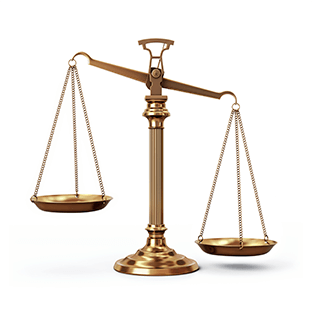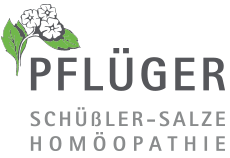Our Immune System
Our Immune System:
High Performance in the Background
We neither see nor feel it: However, the Immune system is active round the clock, but covertly.
Its task is to protect us from harmful germs (pathogens). Each day we are exposed to millions of bacteria, viruses, parasites and fungi, but also particles of dust, pollen and animal hair; still we are usually healthy. For that our body requires a sophisticated and complex safeguard mechanism: The Immune System.
The immune system is not limited to one organ or one location, but it scatters over many areas in the entire body. Bloodstream and lymphatic vessels crisscross the whole body and are the most important transport paths for immune cells and messengers. The lymph transports oxygen and nutrients to the tissues and also evacuates damaged or dead cells, pathogens and impurities.
From brain research we know: Our immune system is not isolated but closely interconnected with the hormone- and nervous system. Emotional and neurochemical conditions are associated with the performance of the immune system. Consequently, the immune system is influenced by thoughts, emotions and stress.
Our Immune System:
High Performance in the Background
We neither see nor feel it: However, the Immune system is active round the clock, but covertly.
Its task is to protect us from harmful germs (pathogens). Each day we are exposed to millions of bacteria, viruses, parasites and fungi, but also particles of dust, pollen and animal hair; still we are usually healthy. For that our body requires a sophisticated and complex safeguard mechanism: The Immune System.

The immune system is not limited to one organ or one location, but it scatters over many areas in the entire body. Bloodstream and lymphatic vessels crisscross the whole body and are the most important transport paths for immune cells and messengers. The lymph transports oxygen and nutrients to the tissues and also evacuates damaged or dead cells, pathogens and impurities.
From brain research we know: Our immune system is not isolated but closely interconnected with the hormone- and nervous system. Emotional and neurochemical conditions are associated with the performance of the immune system. Consequently, the immune system is influenced by thoughts, emotions and stress.
Ingenious Structure
To put it simple, it is a two-tier system. The immune system is broken down in an inherited (unspecific) part as well as an acquired (specific) part. Both are closely intertwined and together constitute the body’s own defence.

The Nonspecific Immune System
Protects us, from birth, of germs and foreign bodies and is therefore referred to as the Innate Immune System.
One of the first protective barriers for potential pathogens is our skin. With a surface of almost two square metres it is an essential barrier, together with the mucous membranes from nose, mouth, gastrointestinal tract, etc.
Our intestine is the largest immune organ of the body altogether with eight metres in length and 400-500 square metres of surface. Should germs be able to break through this rampart a real army of immune cells (leucocytes, macrophages, granulocytes, killer cells, etc.) is ready to stop the pathogens.
The Unique or Acquired Immune Defence
Features a great adaptability towards new or mutated pathogens.
This characteristic is acquired in the course of a lifetime which results in the development of the so-called immunological brain. This allows our body to remember the first contact with germs and a quicker response to further infections.
The cells of the adaptive immune defence are therefore able to adjust to new or mutated pathogens. Thus, they succeed in recognising specific structures (antigens) of foreign substances (cell components, foreign matters, etc.) and activate specific defence mechanisms.
Ingenious Structure
>When the Immune System gets out of Balance
Although it is an ingenious and highly effective system, even the body’s own defence is delicate. There are of course inherited as well as in the course of a lifetime acquired diseases which fundamentally cause an immune deficiency.

Immune Disorders
However, real immune disorders are relatively rare. It mainly concerns severe congenital immune defects, where those affected are often already highly susceptible to infections during childhood and generally suffer more than people without an immunodeficiency.
The most frequently acquired immunodeficiency disease worldwide is AIDS (Acquired Immune Deficiency Syndrome). Here HI (human immunodeficiency)-viruses afflict the cells of the immune system with the result that infectious agents, which are generally harmless for healthy people, cause severe infections. Furthermore, cancerous cells can easily multiply.
The immune defence is also impaired in diseases with uncontrolled multiplication of immune cells such as leukaemia and lymphoma, as the malignant mutated cells are deranged in their function and furthermore displace the still functional immune cells.
Autoimmune Diseases
When the immune system ‘turns the weapon on itself ‘, thus it attacks the cells of the body, it is referred to autoimmune disease.
In case of rheumatoid arthritis, the body for example attacks the joints, which become inflamed and consequently damaged – pain and impaired joint function are the result.
Often autoimmune diseases require a treatment with immune suppressants: Medications that suppress the immune system.
Allergies are an exaggerated, inadequate reaction of the immune system to environmental substances, e.g. pollen, foods, animal hair, etc. Such a hypersensitive reaction differs from a normal immune response in most cases with a quick onset of symptoms as a result of contact with a seemingly harmless substance which is declared as an allergen. Allergens are therefore antigens that trigger – even in small amounts – reactions with symptoms in the body. However, they are harmless in contrast to a true pathogen. In case of hay fever, food intolerances and other allergies the immune system clearly overshoots.
To ensure the Defence:
Strengthen the Immune System
Latest in the cooler season one realises how important a strong immune system is. Of course, the immune defence cannot be trained like a muscle, but nevertheless the system can be bolstered. Already a healthy, sensible lifestyle can accomplish a lot.

The Immune System likes the taste:
Healthy Food
A universal Weapon: Vitamin bombs (Naturally)

Especially in the colder season when the domestic fruit supply is rather sparse, citrus fruit such as oranges, lemons or mandarins are the moment of glory. They provide plenty of vitamin C and boost our body’s defences. One grapefruit or two small oranges are quite sufficient for the recommended daily allowance of 100 mg.
Small Nodule with lots of Power: Ginger

Ginger does not only boost circulation but also has an antispasmodic-, antibacterial- and digestive effect. At the slightest sign of a cold ginger can help: Simply simmer a few slices in half a litre of water for about 30-45 minutes, remove the ginger pieces and drink the warm water.
Always in season for the Immune System: Vegetables

Valid from carrot to kale: It is tasteful, versatile and provides lots of vitamins and minerals. In winter for instance kale is a real ‘saucepan vendor’ that offers, apart from vitamin C also vitamin A, vitamin E as well as the minerals potassium and calcium.
Make it hot: Chilli, Paprika and Pepper

Improve circulation of the mucous membranes which as a result can easily fend off pathogens. In addition, Chilli & Co. scores with essential oils and secondary plant substances. The contained flavonoids and carotenoids have an antibacterial- and antioxidative effect, which means they protect our cells against harmful radicals.
| Vitamin A | Protects skin and body’s defences. A lack disrupts the immune cells. Contained in animal products like milk, eggs and liver; in fruit and vegetables such as apricots, spinach and kale. |
| Vitamin C | Supports the organism in the healing of colds (NOT prevention). Contained in citrus fruit, kale, broccoli, red capsicum. |
| Vitamin E | Protects the cell membrane. A deficiency disturbs the function of the immune cells. Contained in sunflower oil and hazelnuts. |
| Vitamin D | Protects against coughs and sneezes. Is formed in the skin through UV-rays. Contained in fish, mushrooms and avocados. |
| Vitamin B6 | Assists the antibody production, regulates the immune system. Contained in wheat, rice, millet, bananas, sardines. |
| Selenium | Trace-element – strengthens the body’s defences, protects against free radicals. Contained in fish, meat, sesame. |
| Zinc | Trace-element – strengthens the body’s defences. Contained in granary bread and hard cheese |
All relevant Vitamins and Minerals can be absorbed through Nutrition
Sport Strengthens the Immune System
Plenty of exercise, mainly in fresh air, evidently strengthens our immune system, gets our circulation going and keeps the mucous membranes moist. This is especially important in the colder season when being exposed to dry heating indoors.
Endurance sports such as jogging, swimming or cycling not only contribute to muscle building, but also strengthen our defence cells.
Those who exercise also fight pathogens quicker and better. According to experts, 30 to 60 minutes exercising is sufficient to enhance the entire physical activity. However, make sure to wear the correct outfit according to the weather.

Relax and strengthen the Immune System
while sleeping
Besides sports and exercise our immune system especially rejoices at adequate sleep and regular phases of relaxation.
For most adults 7 – 9 hours of sleep are best. Those who also incorporate regular breaks for the body and soul in their daily routine act in the interest of the immune system.
Stress, hassle and anxiety are part of everyday life. Their dealings and the right balance between tension and relaxation are therefore vital. The science of psychoneuroimmunology verified that psychological stress could burden and weaken the immune system.
The following three exercises help to reduce stress, easily relax and therefore strengthen and respectively relieve the immune system.


Exercise 1: Concentrate on Breathing
A classic breathing exercise against stress is the so-called 4-6-8 method: Sit or stand upright, shoulders are straight. Place your hand on the belly and try to breath into the abdomen through the nose.
Breath in slowly and deeply while counting to four. Hold your breath and count to six. Then slowly exhale through the mouth and count to eight. Repeat the exercise at least five times.

Exercise 2: Visualisation
This relaxation technique utilises your imagination in order to achieve inner calm and serenity. A quiet place is important – no phone or children. Sit comfortably on a chair, the spine is straight, and the shoulders are slightly drawn back to open the thoracic space. Close your eyes and inhale and exhale deeply and regularly.
Visualise a place where you feel comfortable: a beach, a flowering meadow or a mountain hut for example. Have a close look at this place. Try to imagine how it would smell there and feel the breeze on the skin. Enjoy this image for a few moments until you are completely immerged in the relaxation. To surface again, consciously inhale and exhale deeply, in order to slowly get back into reality.

Exercise 3: Hold the Head
This exercise from kinesiology caters for clarity and helps to evaluate a situation calmly. Place one hand on the forehead and the other hand on the back of the head at eye level. Breath regularly and pay attention to the rising and lowering of the abdominal wall.
Conduct this exercise for 30 seconds. You will sense your breathing calming down and a relaxed attitude.
By the way:
Please do not forget the laughter. Because laughing with others reduces stress and releases happiness hormones.
You may also be interested
Immune System Fortification






